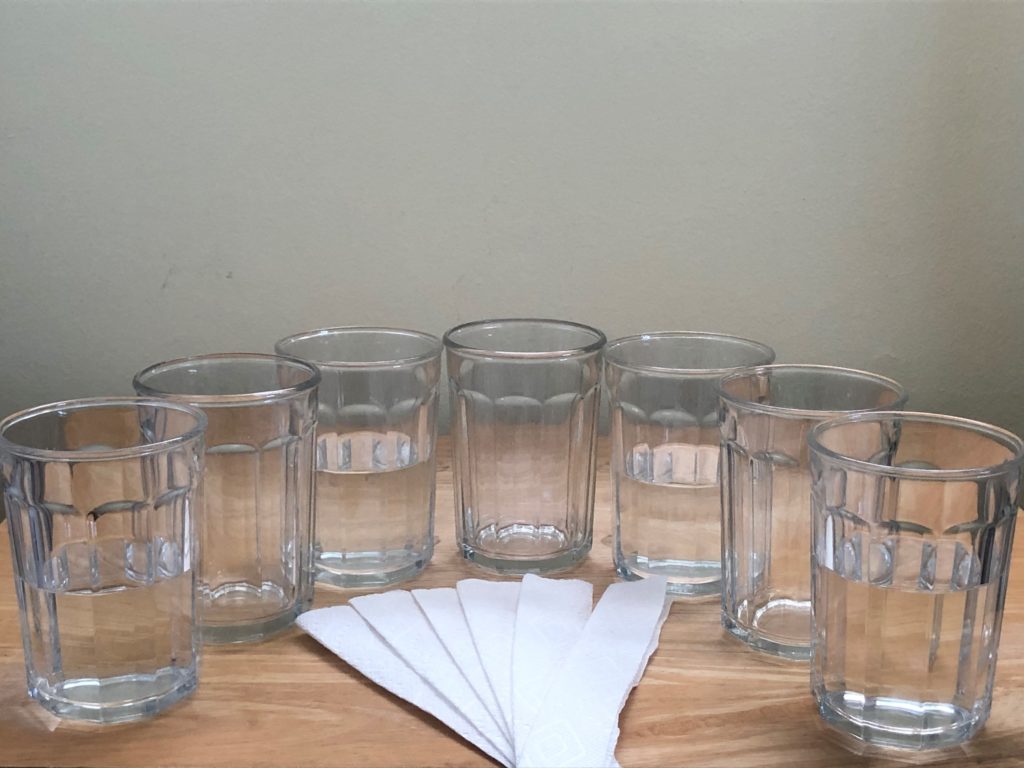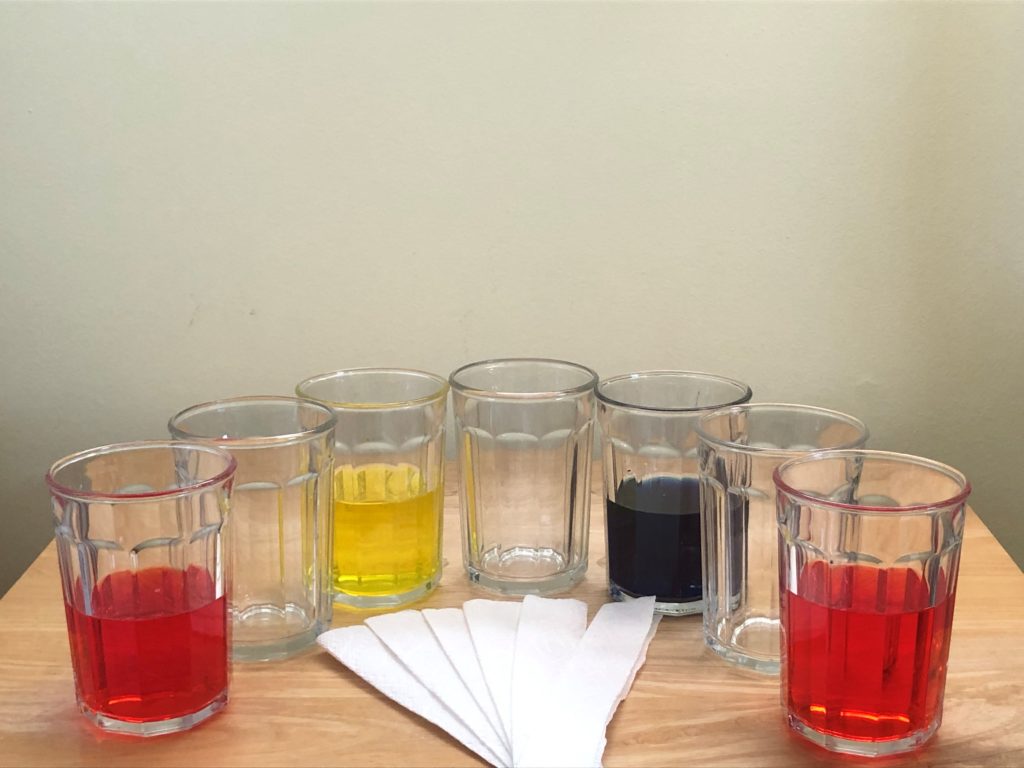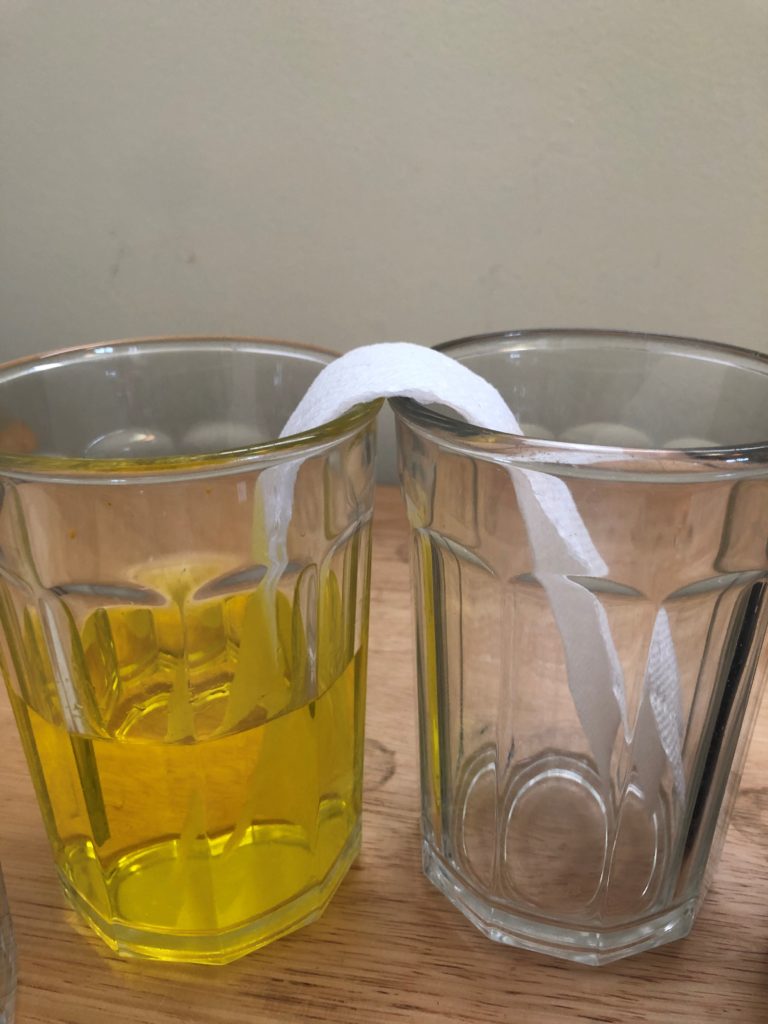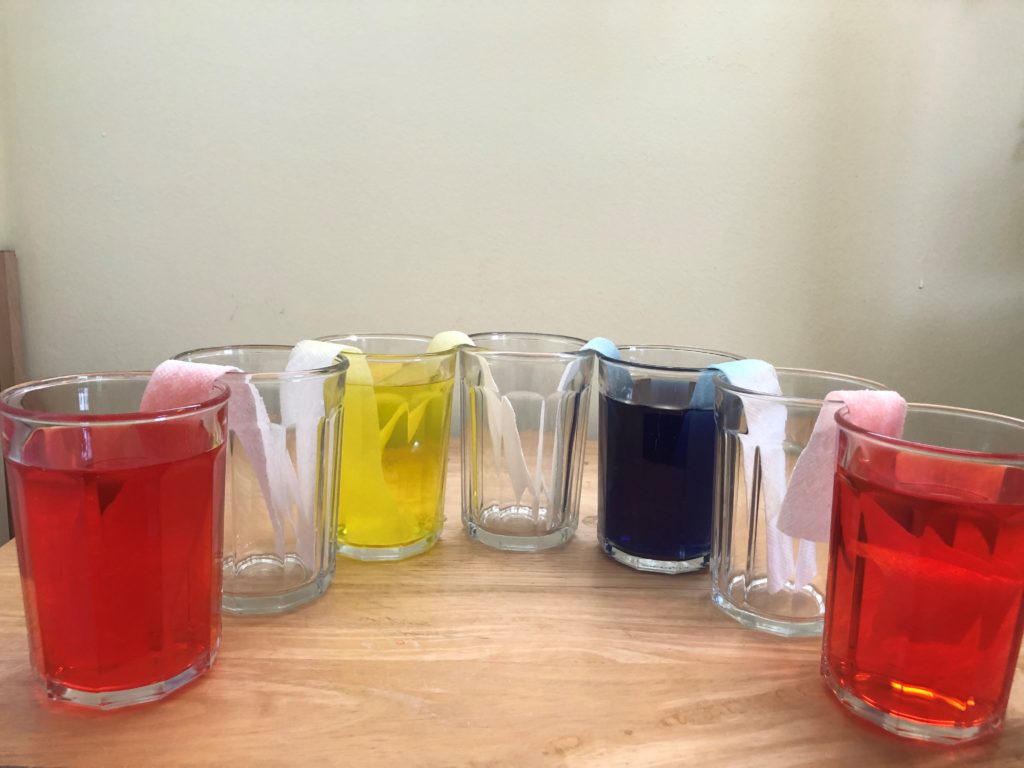Sponsored by: M&T Bank
By: Amelia Schrader
Senior Manager of Education
Gather your little leprechauns and get ready to find the treasure at the end of our WALKING RAINBOW!
Download a printable version here!

What you will need:
7 clear cups or jars
6 pieces of paper towel (cut to size to fit your cups)
Spoon
Water
Red, yellow and blue food coloring

Directions:
Step 1: Line the cups in an arc similar to a rainbow. Fill cups 1, 3, 5 and 7 about halfway with room temperature water.
Did you know pouring helps refine fine motor skills and measuring supports Next Generation Science Standards?

Step 2: Add in three drops of red food coloring to jars 1 and 7. Add three drops of yellow food coloring to cup 3 and finally add three drops of blue food coloring to cup 5. These are all primary colors. Stir each cup to fully incorporate color.
Encourage your kiddos to help with this step! Squeezing the food coloring bottle and carefully stirring each cup helps develop fine motor skills.
Step 3: Insert folded paper towel into each cup as pictured. One end of the paper towel should be submerged in the food colored water and the other end in the empty cup.

Step 4: The paper towel will immediately start to absorb the paper towel. Carefully fill the cup the rest of the way with water. Make sure you do not add any water to the empty cups.
How does this happen? The water appears to climb the paper towel through a scientific process called capillary action. Capillary action is the process of liquids moving through a solid like a hollow tube or absorbent material. Capillary action is how plants move water and nutrients to their stalks and flowers.

Step 5: Leave the cups alone for approximately 2 hours. When you return you will have a rainbow!
Have your kiddos write about and draw a picture of their observations.
Vocabulary Words
· Primary Colors: These colors cannot be created by mixing together other colors. The primary colors are red, yellow and blue.
· Secondary Colors: These colors are created by mixing together two primary colors. The secondary colors are orange, green and purple. Orange is created by mixing red and yellow. Green is created by mixing blue and yellow. Purple is created by mixing blue and red.
· Capillary Action: the process of liquids moving through a solid like a hollow tube or absorbent material. Capillary action is how plants move water and nutrients to their stalks and flowers.
